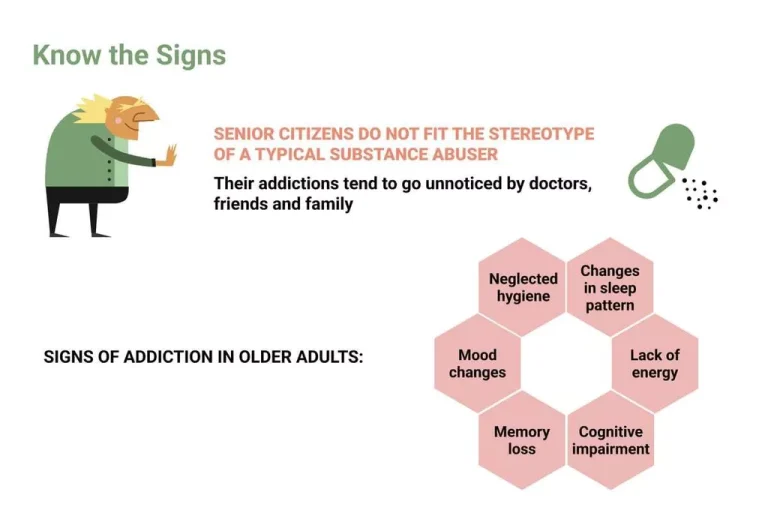
At Compassion Behavioral Health, we offer a range of therapies and treatments designed to help individuals overcome the grip of alcohol and start on the path to a healthier, happier life. Furthermore, alcoholism can weaken the immune system, making individuals more susceptible to infections. Chronic alcohol abuse can impair the body’s ability to fight off pathogens, leaving individuals more prone to illnesses such as pneumonia, tuberculosis, and various types of infections. This weakened immune system can also slow down the healing process, leading to prolonged recovery times for injuries and wounds.
- There are several causes of bruises after drinking; some of these causes are not particularly serious, whereas others could point to a health problem.
- The patient requested a return to his home country (Mexico) for further care.
- When liver function is compromised, overall health and well being is also compromised.
- Once detox is complete, alcoholics can begin tackling problematic behaviors related to their addiction and learn how to live sober again.
- The best way to tackle skin issues from alcohol is with Dermaclara.
Reasons for Bruises After Drinking
Meanwhile, binge drinking focuses more on how quickly and how much you drink in one sitting. The CDC defines binge drinking as drinking that brings your blood alcohol concentration (BAC) to 0.08% or more. This is usually achieved if you consume five or more standard drinks on a single occasion for men or four or more drinks on a single occasion for women. In this guide, we’ll explore 15 https://ecosoberhouse.com/ short and long-term signs that you’re drinking too much, including symptoms that don’t necessarily involve a hangover. They may recommend some at home solutions to help prevent easy bruising as well. This could include things like improving the lighting in your home, avoiding clutter, and making sure there is nothing in the way when you walk.
- A life away from drugs and alcohol seemed impossible for someone like me.
- When alcoholic liver disease completely compromises the liver, a transplant is necessary.
- Alcoholics may also have darker bruises due to the increased amount of blood in their body.
- Take a read, take notes, and consider where you can make some lifestyle changes.
- Alcohol and unexplained bruising could point to liver damage from drinking.
When Should I See a Doctor About Bruising After Drinking?

When the liver cells become damaged, they attempt to heal themselves. When the cells are damaged repeatedly over time, the liver becomes inflamed and the attempt to heal leads to fibrosis, and eventually to cirrhosis. Cirrhosis of the liver is a serious condition in which permanent scarring interferes with the normal blood flow through the liver and diminishes normal liver function. If left untreated at this stage – liver cancer and eventually liver failure may occur.
Q: Are there specific skin conditions directly caused by alcoholism?
Because denial is common, you may feel like you don’t have a problem with drinking. You might not recognize how much you drink or how many problems in your life are related to alcohol use. Listen to relatives, friends or co-workers when they ask you to examine your drinking habits or to seek help. Consider talking with someone who has had a problem with drinking but has stopped.

I consider what I do for the addicted population as a calling versus a “career,” because I too was once an “addict and alcoholic.” Today I am 45.5 years alcohol and substance free. Patrick McCamley (Clinical Therapist) is a Cincinnati native who has worked in substance use disorder/co-occurring mental health disorder treatment since 2019. Patrick has worked in Clinical Operations, Clinical Case Management, and Clinical Therapy throughout his career. In the short term, it can lead to injuries, violence, and alcohol poisoning. It also increases the risk of suicide, sexual assault, and homicide. Heavy drinking can cause risky sexual behavior and unintended pregnancy.

An assessment of alcohol use will establish when alcohol consumption started, how much a person drinks, and how often. The end-stage alcoholic suffers from a host of physical problems, including severe damage to vital organs such as the liver. Alcohol, in fact, is the cause of more than 50 percent of liver-disease related deaths in this country, and alcohol-related liver disease costs more than $3 billion annually. As the disease progresses to the middle stage, drinking continues to increase and dependency develops.
Either gaining or losing weight
- This alcohol intolerance is genetic and is found in about 8 percent of people worldwide.
- This will assist in avoiding dehydration and allow you to thoroughly enjoy your night without any unwanted repercussions.
- Alcohol is one possible culprit for heartburn because it may lead to increased production of stomach acid.
- And yes, you may feel great and energized upon waking up—but that doesn’t mean you didn’t have too much to drink the night before.
- Despite heavy alcohol consumption, they may show few signs of intoxication or ill effects from drinking, such as a hangover.
However, understanding the reasons why can help you take steps to minimize risks and harm. So in summary, alcohol both increases your risk of trauma while also impacting the body’s ability to prevent and recover from injury. Consistently drinking over a period of time leads you to develop a tolerance to alcohol. If you suddenly stop drinking, this can lead to a number of uncomfortable alcohol withdrawal symptoms.
Signs Your Body Is Telling You You’re Drinking Too Much

This happens because it interferes with the production of platelets (and other blood cells) in the bone marrow. A graduate of Texas Tech University and the University of Cincinnati, Trent is fervently dedicated to providing evidence-based, compassionate care to those battling addiction. He emphasizes a holistic, patient-centered approach and stays updated on the latest in addiction research. Trent Carter, FNP-BC, CARN-AP, is a seasoned nurse practitioner with over a decade of experience in addiction Sober living home medicine.
Your liver helps your blood to clot, and the liver helps blood to move evenly throughout the body. When the liver is damaged, it can no longer filter alcohol correctly, and it may not be able to keep the alcohol bruising bloodstream healthy. For the same reason you have trouble with motor control and coordination, you will also have a worse reaction time while drinking. Since alcohol slows down central nervous system activity and communication, you take longer to register stimuli and decide what to do.